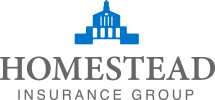Commercial Liability Insurance is the cornerstone of every business owner’s insurance program. This policy provides Liability protection for your premises, operations, products, completed operations, personal & advertising injury, and medical payments. This policy provides coverage for any accidents caused by your business, and claims caused by sub-contractors working for you. Understanding these different parts of a Commercial Liability policy will make you better prepared to protect your business from a potential claim.
Common coverages and items to consider when purchasing Commercial Liability Insurance
Premise Liability
In the event of a claim of property damage to others, or bodily injury occurring on your property will be paid under this coverage. Some examples of claims are: 1. A client slips on a bathroom floor and breaks their arm. 2. A forklift backs into a client’s truck while loading product resulting in property damage.
Operations Liability
This coverage provides protection if a claim occurs while you are performing tasks for clients. Some examples of claims would be: 1. You are a home builder and a subcontractor you hired caused a fire destroying the home. 2. A furniture store delivery driver scratches a client’s hardwood floor while moving a chair in their house.
Products Liability
If your business makes a product, and it causes property damage or bodily injury to a consumer. In some cases, you can also endorse your policy to include product recall coverage. An example of a claim would be: A company makes generators, and it explodes while in use by a consumer and caused bodily injury. For any manufacture, retail operation, wholesaler, and distributors this is the most important part of the Commercial Liability Insurance policy.
Completed Operations
This coverage will protect you for any losses after you completed work for a client. For example, you installed a sprinkler system in a building and a month later a pipe malfunctioned and destroyed two floors of a client’s building. Even though you “completed” the work a month ago you would have coverage under a Commercial General Liability Policy.
Personal & Advertising Injury Liability
Protects your business for any unintentional damages caused by libel, slander, disparages of product or service, and infringing on another’s copyright, slogan, or advertisement. Remember for you to be covered it must be unintentional, and not maliciously pre-mediated. A common example of a claim would be: A company is updating their website, and did not pay the usage rights for an image and gets sued. In this situation, it was unintentional, and would be paid up to the policy limits under Advertising Injury Liability.
Medical Payments
This coverage provides a quicker option to resolve smaller injury claims without having to file under Premise, Operations, and Completed Operations Liability. Medical Payments is often referred to as “Goodwill” as it provides a quicker payout, and not as an intensive claim process. An example of this type of claim would be: A client slips and falls in a bathroom and must go to urgent care.
Use an Experience Commercial Insurance Agent
Commercial Insurance has many different variables, and only the most experienced insurance agents can guide you through the process. Therefore, you don’t see a lot of Insurance Companies offering this coverage to be purchased direct online, or by phone. When looking for an agent, they should have a general knowledge of your business, and how it operates. This allows the agent to make coverage suggestions that are unique and helpful to your business. The bottom line is do your research when selecting an insurance agent to work with.
Common Questions about Commercial Liability Insurance
Determining how high of a limit your business should have is the first step. This limit should reflect how large, or how much revenue it generates. The larger the business, the higher limits you should have. The minimum limit available is $300,000, however, we recommend at least $1,000,000. Furthermore, it is not very expensive to increase the limits on a policy. The bottom line is – get the maximum you can afford. Remember that the insurance company is only obligated to pay a claim up to your policy limits. You don’t want to exceed your policy limits and be subject to lawsuits or judgments.
This is a process you must be involved with your insurance agent. When purchasing Commercial Liability Insurance, you need to disclose as much information about your business. This will allow the agent to appropriately provide the right coverage for your specific business type. Commercial Liability Insurance is not a one size fits all solution, every policy is specifically rated for different business types. If you have the wrong classification for your business, coverage could be excluded in the event of a claim and you could be left defending yourself.
Commercial Insurance Products
- Commercial Property Insurance
- Commercial Liability Insurance
- Business Auto Insurance
- Workers Compensation Insurance
- Commercial Umbrella Policy
- Professional Liability Insurance
- Commercial Bonds
- Cyber Liability Insurance
- Builders Risk Coverage
- Employers Practices Liability
- Crime Coverage
- Directors & Officers Insurance
- Environmental & Pollution Insurance
- Cargo Insurance
- Ocean Marine Insurance
